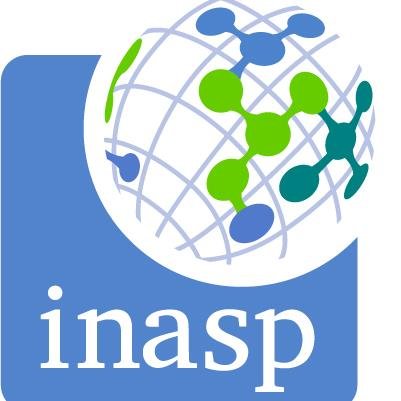 Editor’s Note: Jonathan Harle (@jonharle) is Senior Programme Manager, Research Access & Higher Education and Director of the Strengthening Research & Knowledge Systems Programme at INASP.
Editor’s Note: Jonathan Harle (@jonharle) is Senior Programme Manager, Research Access & Higher Education and Director of the Strengthening Research & Knowledge Systems Programme at INASP.
When the United Nations issues a declaration detailing a new global development agenda for the next 15 years, it probably doesn’t create many ripples in the publishing industry. But their new Sustainable Development Goals — also known as Global Goals — should make us sit up and think.
Since 2000, the Millennium Development Goals have served as the global framework, identifying priorities for reducing poverty and improving the health, education and livelihoods of the world’s poor. They have guided strategies for multilateral agencies, NGOs, and governments, and they committed wealthy nations to invest financial and technical resources across Africa, Asia and Latin America. A lot was achieved — huge improvements in maternal health, more people with access to decent sanitation, millions of lives saved from better TB prevention and treatment. But despite this progress, most goals weren’t met and there’s a huge amount still to do.
And, aside from debates within the pages of specialist development journals, the goals probably featured relatively little in most publishing conversations. The Sustainable Development Goals are different — they suggest that the publishing industry has an important role to play in producing, sharing and using research for development.
A Global Framework to Tackle Poverty
There are are 17 goals — broader in scope and ambition than the eight Millennium Goals, and they were adopted by world leaders at the UN last September. They cover some of the critical challenges facing the world as a whole, and developing countries in particular: the 800 million people still living in extreme poverty, the 795 million chronically undernourished, women who lack rights to land and property or suffer sexual violence and discrimination, those making their lives in mega-cities without good sanitation, housing or other basic services; and the many in developing countries who stand to suffer most if we don’t deal urgently with a warming planet.
While the challenges and the issues might be familiar, the SDGs differ from previous global frameworks. Firstly, they are firmly and clearly universal in their scope. They are about not what the rich world must do for the poor, in the simple transfer of aid, but what every country needs to do to protect the planet and to improve the life chances of millions across the world, through their own domestic policy.
Second, they recognize that we need an integrated approach. We can’t tackle health or education or sanitation or the challenges of growing cities in isolation.
Recognizing the Role of Research
Third, and most important for the scholarly publishing community, they make specific mention of research, and of higher education. Goal 2, which commits the world to end hunger, achieve food security, and improve nutrition, identifies a need for agricultural research. Goal 7 on energy also points to a need for more research, as does Goal 14 on oceans and marine life. Goal 4, which commits to achieving inclusive and quality education recognizes tertiary education alongside primary and secondary levels.
The Goals further recognize the need to invest in research infrastructure, and in training scientists. Underpinning Goal 9 (of resilient infrastructure, sustainable industrialization and innovation) is the need to enhance scientific research, increase the numbers of researchers and increase investment in research.
The African Union’s continental Agenda 2063 is similarly ambitious about improving the well-being of its one billion people — and has similarly recognized that higher education and research must play a critical role. Developing research and higher education in support of these goals will inevitably require research to be published and made accessible to researchers across the globe.
As I’ve written about here, for research to be relevant — asking the right questions, contextualized to local circumstances, conducted so that policy makers or communities are engaged — much more of it must be done by Southern academics. And that means stronger research systems in developing countries, something that publishers can do a great deal to support. The publishing industry has done great things in the last 20 years, including providing their content to developing countries through Research4Life, through INASP’s access initiative, and in conjunction with EIFL. But we need to do more.
Global Partnership
The world of research and publishing has changed enormously since INASP and R4L’s schemes were first developed. There have been new investments in research infrastructure and facilities in many developing countries. The higher education system has grown rapidly, bringing many more students onto campuses, eager to learn, and contributing to a growth in research output. Publishers have recognized this positive growth, and have begun to develop new relationships — beyond philanthropic schemes — with local library consortia.
Goal 17 commits the world to a global partnership for development. It recognizes that we won’t realize any of these goals unless we bring organizations together, across sectors, and in new and creative ways. This means working across government, the private sector, and civil society, recognizing that each has a role to play in solving some of development’s difficult problems.
Goal 17 has another important message, which also matters for the quality of these partnerships and the approach we take as external actors: we need to respect each country’s policy space and leadership. We believe this is important in the research and publishing system too. It’s why we’ve developed — with publishers — a series of principles for responsible engagement with developing countries. We’ve shaped and discussed these over the last couple of years through Publishers for Development.
Respecting a country’s wish to negotiate as a consortium or purchasing club, rather than working around it in search of better deals from government; taking the time to understand the context and needs of a country; opening conversations about pricing or other changes in plenty of time; and ultimately being realistic about sales expectations, are vital if publishers want to support the growth of strong, independent research systems and institutions in developing countries.
It’s not just about access to Northern research of course. For research done locally to inform global debates and contribute to the world’s knowledge, it needs to be easily discoverable and read around the world. National and regional journal publishing is important here — such as the journals we support as part of the Journals Online project — but this knowledge also needs to find its way into the pages of the established internationally-read titles so that Southern authors are genuinely part of global conversations.
There’s a lot that publishers can do here — from recognizing that it’s often harder for Southern authors to understand the publishing process (how to choose a journal, how the peer review system works) and the unaffordable expense of article processing charges (APCs) for many of them (credit is due to the many publishers who offer waivers here), to actively soliciting contributions and participation from Southern editors and authors.
Lots Achieved, Lots More To Do
INASP celebrates 25 years in 2017, and we’ve just launched our new five-year strategy. In this time, we’ve worked with over 25 countries to increase access to research, enable Southern researchers to publish and communicate their own work, and strengthen the research-to-policy interface. A charity governed by a board of trustees, we’ve received financial support from government development agencies and independent foundations, as well as considerable in-kind support from publishers, who’ve made collections freely available, or dramatically lowered prices.
We and our partners have achieved some real successes. Work with the African Centre for Technology Studies brought better evidence to bear on Kenya’s climate change bill, which has now been passed. Researchers like Ugandan entomologist Joshua Okonya have been able to get their work published and visible to international peers with support from AuthorAID, a global platform that matches experienced researchers to those looking for advice, and offers online training courses in research writing. In Asia, Africa, and Latin America there are now national publishing platforms, which make local research visible, play an important role in local research ecosystems, and are progressively increasing publishing quality.
Working with publishers we’ve enabled around four million students and researchers to access the journals and books they need, and helped to strengthen university libraries, and build stronger national systems to sustain this into the future. The flow of the latest scholarly information through the labs, libraries and lecture halls of hundreds and hundreds of universities and research centers is a triumph of partnership and of commitment. These are partnerships that we want to continue, and which will play an important part in delivering our new strategy.
Research and knowledge have the potential to enable real change for some of the poorest and most poorly-served across the world. As a planet and as a global community, we can’t afford to let anything get in the way.
Read our new strategy, and get in touch if you share our vision.
Discussion
8 Thoughts on "Guest Post: INASP’s Jonathan Harle on Why Publishers Need to Pay Attention to the UN’s Sustainable Development Goals"
There are also prizes to be won for supporting the UN Sustainable Development Goals! See http://www.wsis.org/prizes and let’s see some publishers winning!!
Regarding Southern researchers and publishers I recently ran across some amazing statistics. Low cost APC journals have taken off, growing rapidly and now publishing something like half a million articles a year, a huge number. However, they are labeled as predatory, which I think is generally incorrect. The specifics are here:
http://davidwojick.blogspot.com/2016/09/predatory-versus-low-cost.html.
It looks like a mostly Southern publishing revolution in progress.
Hi David, couldn’t agree more – that the predatory label is unhelpful when we’re actually dealing with the issues or publishing in situations where funding and other resources are limited, but also – and importantly – an unfamiliarity with the norms of Northern-based publishing.



